La Iniciativa de Acceso se enorgullece de anunciar una búsqueda de Campeones de Escazú.
CENTDOR
Center for Development Oriented Research in Agriculture and Livelihood Systems (CENTDOR) is a non-profit, non-religious and non-political organization aimed at providing knowledge on multiple issues including policy development, resource governance, rural livelihood systems, and the performance and effectiveness of development programs. The Center was formed by a group of Cambodian graduates from a variety of fields, including agriculture, rural development and agricultural economic development.
- Address
-
Cambodia
- suonseng@online.com.kh
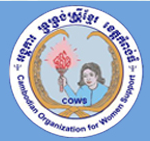
Cambodian Organisation for Women Support
Cambodian Organisation for Women Support (COWS) is a non-governmental, non-profit organization that works on a number of issues including sustainable and stable living, sanitation for the impoverished, and empowerment for the marginalized. COWS aims to support and empower Cambodian women and other vulnerable members of Cambodian society. The mission of COWS is to increase awareness, motivate action, and provide assistance while establishing lasting partnership to create and implement initiatives for the development and advancement of community health, food security, and democracy. COWS works on natural resource management issues, encourages good governance at all levels, and promotes health education campaigns.
- Address
-
Cambodia
- cows_org@yahoo.com

Community Legal Education Center
The Community Legal Education Center (CLEC) was created in 1996 as a legal resource center, promoting the rule of law, justice, and democracy in Cambodia. CLEC legal empowerment activities combine legal awareness, training, legal aid services and advocacy supports. Its training is designed for a wide range of target groups including local communities and NGOs. CLEC has been involved in advocacy on a number of significant law reform issues including the 2001 Land Law, the sub-decree on indigenous communal land titling, establishment of the Arbitration Council, the election dispute resolution process, the drafting of the Peaceful Assembly Law, and commentary and review of numerous pieces of legislation. Since 2004, CLEC has embarked on a major project of high impact public interest legal advocacy, particularly in the areas of land and natural resources and labor. Legal representation, legal defense and consultation are becoming even more crucial as tools to support legal empowerment both in the improvement and assertion of the rights of communities and in law and policy development and enforcement.
- Address
-
Cambodia
- chundy@clec.org.kh
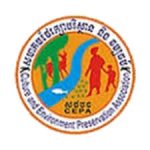
Culture and Environment Preservation Association
The Culture and Environment Preservation Association (CEPA) is a non-governmental organization founded by activists committed to preserving their natural resources. The association promotes advocacy to ensure sustainable environmental management, environmental education, and community based natural resource management activities in Ramsar (Convention on Wetlands of International Importance) sites. CEPA aims to promote and increase the peoples economic, social and cultural rights while fostering a commitment to the protection of its culture and environment through research, information exchange, knowledge acquisition and enlightened activism. CEPAs mission is to improve the livelihood opportunities of the Cambodian people, promote social justice and sustainable livelihood, and empower communities to manage their natural resources.
- Address
-
Cambodia
- cepa@cepa-cambodia.org
Fisheries Action Coalition Team
Fisheries Action Coalition Team (FACT) is a coalition of non-governmental organizations (NGOs) working on fishery and environmental issues in three areas: Cambodias coastal region, Tonle Sap Lake, and the Mekong River. The coalition is committed to advocate for fishery issues and monitor policy reform. FACT mobilizes civil society organizations to engage in advocacy programs that respond to development policies and programs more effectively. FACT works towards building a strong coalition of NGOs and local grassroots organization to protect fisheries, water resources, and other natural resources.
- Address
-
Cambodia
- savath@fact.org.kh
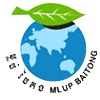
Mlup Baitong
Mlup Baitong (MB) is a non-governmental organization working to increase environmental awareness and conservation in Cambodia. MBs mission is To support the protection of the environment in Cambodia by increasing awareness and promoting sustainable use of natural resources while improving peoples livelihood. The organization aims to contribute to poverty alleviation of Cambodia through right-based empowerment of rural communities to manage their natural resources sustainably while improving their livelihoods. MB seeks to provide solutions for the sustainable and equitable use of natural resources through education, training, community-based natural resource management, community based ecotourism, good governance, and climate change activities.
- Address
-
Cambodia
- vamoeurn@online.com.kh
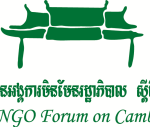
NGO Forum on Cambodia
The NGO Forum on Cambodia is a membership organization that builds non-governmental organization cooperation and capacity, supporting non-governmental organization networks and other civil society organizations to engage in policy dialogue, debate and advocacy. The Forum works to improve life for poor and vulnerable people in Cambodia. The goal of the NGO Forum is that the rights of the poor and vulnerable are recognized and supported by the policies and practices of Cambodias government and the wider community. The NGO Forum both provides and expects to access clear, accurate and up-to-date information. The Forum is committed to development that meets the needs of the present without compromising the ability of future generations to meet their own needs. There are four key programs which support the NGO Forum achieve its mission: the Core Programme, the Development Issues Programme, the Environment Programme, the Land and Livelihoods Programme and Research and Information Center.
- Address
-
#9-11, St. 476, Sangkat Toul Tompoung1, P.O. Bo 2295 Phnom Penh 3CambodiaPhnom PenhPhnom Penh 855
- vannara@ngoforum.org.kh
- Phone
- 85512793489
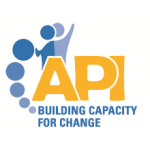
The Advocacy and Policy Institute
The Advocacy and Policy Institute (API) is a non-governmental organization which has a mission to serve the long-term democratic and social development needs of Cambodia through supporting and empowering people to interact with their government to protect their rights and provide for the needs of themselves and their communities, particularly poor, minority and marginalised peoples. API works with all national and international institutions who share its values to advocate for positive and peaceful social change and to improve the capacity and cooperation of all Cambodians. It seeks to build bridges between governments, citizens and the private sector, consistent with its goal of increasing Cambodias democratic space by creating more effective advocates and responsive government institutions. API advocates for policies on access to information and social accountability and plays a crucial role in achieving goals of democratisation, participation, good governance, poverty reduction, social accountability and development. These services are provided through a number of workshops, forums, and publications. API provides advocacy and policy development training to both partner and non-partner organizations as to create more effective advocates and responsive government institutions with the hope of increasing Cambodias democratic space. One of API's three programs is the 'Freedom of Information program' which aims to increase public access to public institutions, information and the legislative process.
- Address
-
Cambodia
- sinthayneb@apiinstitute.org
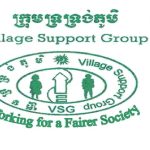
Village Support Group
Village Support Group (VSG) is a non-governmental organization that works in partnership with seven international organizations on different issues including capacity building in the forestry sector, natural resource management of community fisheries, and working towards decentralization and good governance in Cambodia. The group facilitates the empowerment of individuals through leadership training and participatory social development. VSG also helps encourage minorities and indigenous groups to get involved in community-based organizations through capacity building initiatives and raising their critical awareness through a participatory approach. VSG brings access and opportunities to poor rural communities and helps them implement sustainable livelihood programs.
- Address
-
Cambodia
- chhorvivorn@vsgcambodia.org